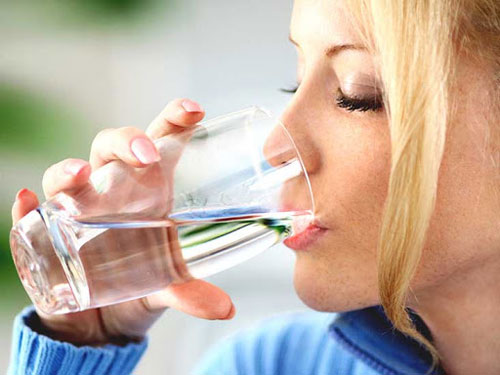You want chlorine in your pool—not your drinking water. If you’re finding too much chlorine in your water supply, it may be time to look into a water treatment system for your home.
Chlorine is probably best known for its strong associations with the freedom it provides our summer vacations — that swimming pool smell is partially due to the build-up from chlorinated water.
But this chemical can show up in other places as well, like your tap water. Since the 1800s, it has been one of the chemicals of choice for cities and water companies to treat their water to avoid nuisance substances and toxins. But if there’s too much chlorine in your water — especially in your tap water — you could leave you and your family in danger of chlorine poisoning.
Though chlorinated water might not be as high-profile as other water contaminants, it can be just as hazardous to an unassuming drinker. While it may not immediately notice its effects, high levels of chlorine can still create problems in the human body. It may be worth looking into treatment options for your water to ensure your drinking water is safe.
What is the Danger of Chlorine in my Drinking Water?
Chlorine is, in many circumstances, helpful to have in your water. It is non-toxic to humans at low-levels, which is why you don’t have to worry too much about the kids getting a mouthful of pool water now and then. With so many people coming and going in a pool, you’ll want to make sure the water is treated right to avoid certain types of infection.
But when it comes to drinking water, there are better ways to disinfect water and keep harmful bacteria out. And although diluted chlorine may be non-toxic enough for municipalities to use it to treat water, too much chlorine can still have harmful side effects.
Chemical compounds that form as a byproduct of too much chlorine have been linked to (and can exacerbate) numerous conditions, including:
- Asthma
- Eczema and other skin conditions
- Food allergies
- Certain types of cancer, like that of the bladder or rectum
Additionally, even if the levels in your house are safe, they may create an unpleasant taste. If you don’t feel comfortable drinking the water in your home, our team at Atlantic Blue Water Center can set you up with a complimentary water test to see if your water is too chlorinated. Call (410) 751-9200 or fill out our quick contact form to set up an appointment today.

Signs of Chlorine Poisoning
Making sure you have the right balance of water and chlorine is crucial, especially when it comes to drinking water.
Chlorine poisoning is considered extremely dangerous. While it isn’t common, there are a few signs that you should be on the lookout for if you think you’re at risk:
- Sudden nausea and vomiting
- A sore throat
- Difficulty breathing, either with shallow breaths, wheezing, or an irritated airway
- Eye irritation
- Skin irritation, usually resulting in the form of red skin
Remember that the severity of these effects will look differently depending on the exposure and its route into your body. How much and how long you were exposed to the chlorine can also impact how these symptoms present.
You can’t expect them to come immediately after exposure. Some side effects of high chlorine levels—like a build-up of fluids in your lungs—can come about several hours after exposure. In the case of drinking water, it could even take months or years to see adverse effects.
Watch closely for symptoms if you fear you or a loved one has been exposed to too much chlorine. In extreme cases, it may be necessary to reach out to the Poison Control Center or even seek medical help.
To treat even mild symptoms of external exposure to high amounts of chlorine, you should flush the infected area with large amounts of water. That makes it crucial to know that the water in your home isn’t over-chlorinated. If you’re interested in setting up a free water test, get in touch with our office for an appointment.
What Can I Do About the Chlorine in My Drinking Water?
The good news is you don’t just have to pack up and move. With proper water treatment, our specialists can help set up a filtration system in your home for either city or well water.
These filters do more than just eliminate the chlorine taste and odor. They can also neutralize acidic water and remove any irritating particles and build up in your home water system.
These particulate filters can help ensure not only that your drinking water is safe, but also the water you use for baths, laundry, and more. Call (410) 751-9200 today.
